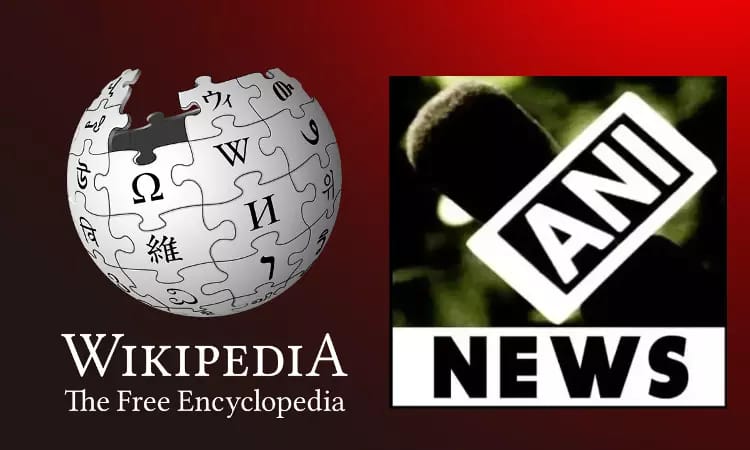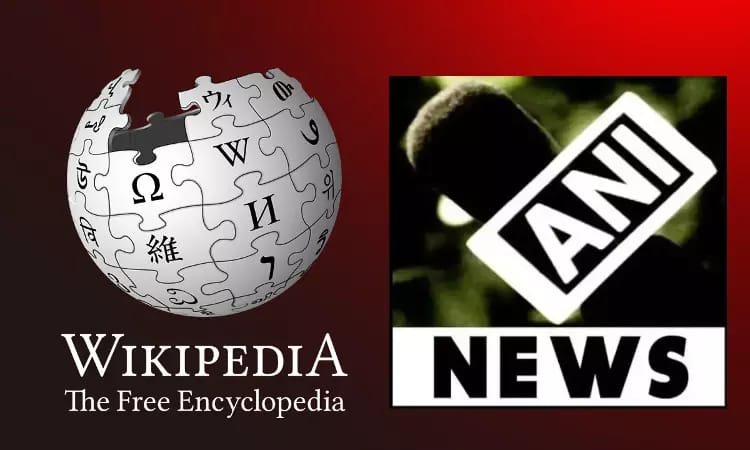
The Delhi High Court recently had serious doubts about the neutrality of Wikipedia and in particular, the Asian News International (ANI) page. The court noted that Wikipedia, which presents itself as a neutral encyclopaedia could not be neutral in reference to ANI. The court ruled that Wikipedia must delete allegedly defamatory material against the news agency.
Challenging Wikipedia‘s Neutrality Policy
Headlining the case, Justice Subramonium Prasad noted that Wikipedia’s editorial principles demand the production of neutral and unprejudiced content. The court noted, however that the ANI Wikipedia page seemed to stray from the editorial principles. It was noticed that the offending terms to a large extent addressed opinion-based articles as opposed to factual reporting, compromising the authenticity of the content.
The judge went on, “It seems that the page statements are based largely on opinion and editorials. Because Wikipedia seems to be an encyclopaedia, it has an even greater obligation to make sure that the expressed opinions are grounded in the source material”.
Dismissal of Wikipedia’s Intermediary Defence
The High Court squarely dismissed Wikipedia’s contention that it is nothing but an intermediary site and not a publisher of its users generated content. The court asserted that as Wikipedia is widely used as a source of reliable information; it has the additional burden to ensure that there is no defamatory information being circulated.
“Since Wikipedia presents itself as an encyclopedia, the general public tends to treat its statements as verified truth. This increases its responsibility manifold”, the court stated.
This ruling aligns with global debates on whether digital platforms, especially those relying on crowd-sourced content, should be held to higher standards of accuracy and neutrality.
ANI’s Allegations of Defamation on Wikipedia
ANI had filed the case to court, complaining that its Wikipedia page had misrepresented it in a false light as an “Indian Government Propaganda Tool”. ANI claimed that the statements were inaccurate, misrepresented the original source material and unfairly harmed its reputation.
Upon reviewing the cited articles, the court found that the controversial statements were not faithful reproductions of the original sources. Instead, they were framed in a way that misrepresented the intent and content of the articles.
The judge observed, “The impugned statements contradict the original context and are devoid of proper background, thereby misleading readers about ANI’s role and credibility”.
Challenges in Editing and Content Correction of Wikipedia
One of the main challenges for ANI was Wikipedia’s limited editing policy. Because of the page’s sensitive nature, only senior editors could edit its content, which restricted ANI from making corrections to supposed misrepresentations in a timely manner. The court recognized this limitation, noting how Wikipedia’s well-meaning anti-vandalism policies could also hinder affected parties from responding adequately to defamatory material.
Legal Proceedings and Contempt Notice on Wikipedia
Earlier this July of 2024, the Delhi High Court had ordered Wikipedia to disclose the identities of the editors who made the controversial changes. ANI, however, later informed the court that Wikipedia had not completely obeyed, and a contempt notice was issued.
The court then ordered the personal appearance of a representative of Wikipedia on October 25, 2024. The court later made an agreement in which Wikipedia was to inform the participating users without divulging their names.
The Division Bench also protested at Wikipedia having a separate page with a different name called “Asian News International Vs. Wikimedia Foundation” documenting the continued legal battle. The court instructed its removal, which was enacted by Wikipedia but subsequently contested in the Supreme Court, which would hear the case on April 4, 2025.
Broader Implications of Digital Content Regulation
This case would set a significant precedent on the functions of online platforms with regard to neutrality and defamation. As courts everywhere contend with the challenge of content moderation, the Delhi High Court observations can influence legal codes on online intermediaries going forward.
The ruling is an indication of increasing judicial oversight of platforms like Wikipedia, especially in terms of their function in influencing public opinion and preventing misinformation.
About Author
This article has been written by Abhinaya Moses, a committed LLM student of Taxation Laws at Government Law College, Coimbatore. With a hungry legal mind and writing skill, she blends even the most abstract concepts in simple words through content writing effortlessly. She is striving to position herself as a potential tax expert and interesting legal blogger capable of making law interesting

